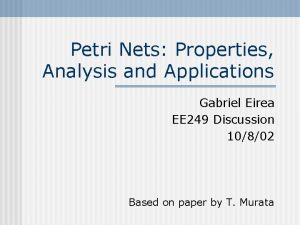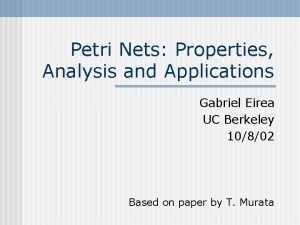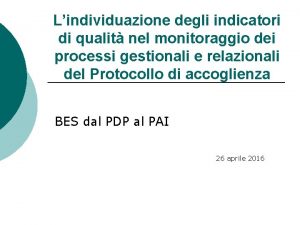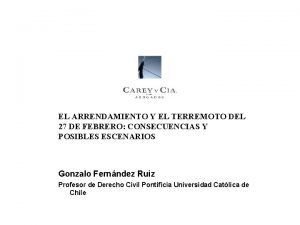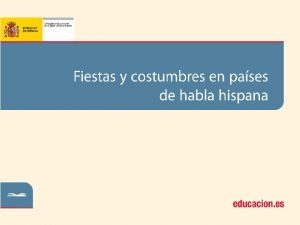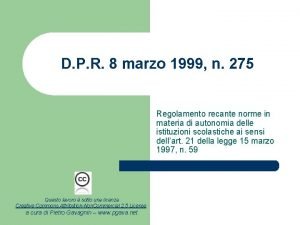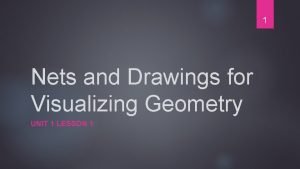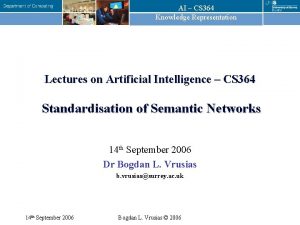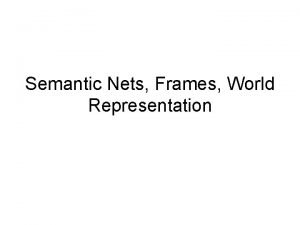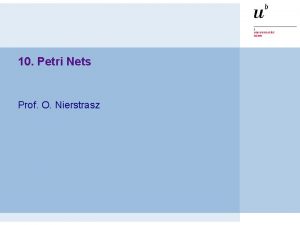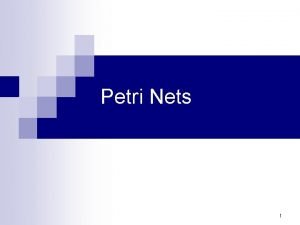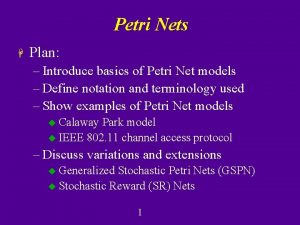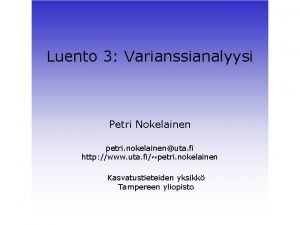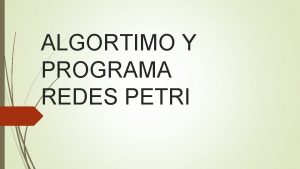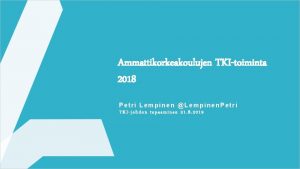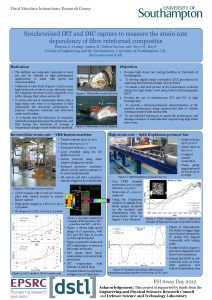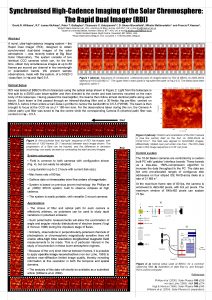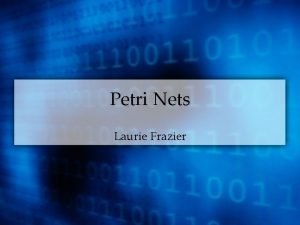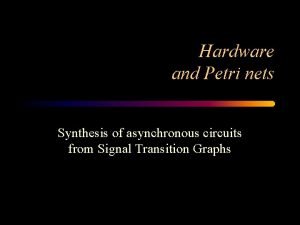RealTime Synchronised Petri Nets Giovanna Di Marzo Serugendo




![Real-Time Synchronised Petri Nets Synchronisation Time Interval move [5. . 15] Methods put [2. Real-Time Synchronised Petri Nets Synchronisation Time Interval move [5. . 15] Methods put [2.](https://slidetodoc.com/presentation_image_h2/d1c2e5dd5dd5398dc3958e3d161355a4/image-5.jpg)
![Real-Time Synchronised Petri Nets move [5. . 15] put [2. . 10] 1 0 Real-Time Synchronised Petri Nets move [5. . 15] put [2. . 10] 1 0](https://slidetodoc.com/presentation_image_h2/d1c2e5dd5dd5398dc3958e3d161355a4/image-6.jpg)
![Real-Time Synchronised Petri Nets move [5. . 15] put [2. . 10] 1 1 Real-Time Synchronised Petri Nets move [5. . 15] put [2. . 10] 1 1](https://slidetodoc.com/presentation_image_h2/d1c2e5dd5dd5398dc3958e3d161355a4/image-7.jpg)
![Real-Time Synchronised Petri Nets move [5. . 15] put [2. . 10] 1 0 Real-Time Synchronised Petri Nets move [5. . 15] put [2. . 10] 1 0](https://slidetodoc.com/presentation_image_h2/d1c2e5dd5dd5398dc3958e3d161355a4/image-8.jpg)




![SOS Rules put [2. . 10] move [5. . 15] 1 0 X 0 SOS Rules put [2. . 10] move [5. . 15] 1 0 X 0](https://slidetodoc.com/presentation_image_h2/d1c2e5dd5dd5398dc3958e3d161355a4/image-13.jpg)








- Slides: 21

Real-Time Synchronised Petri Nets Giovanna Di Marzo Serugendo Dino Mandrioli, Didier Buchs, Nicolas Guelfi University of Geneva, Switzerland PN’ 02 / 24 th June 2002 Giovanna Di Marzo Serugendo

Motivations w Synchronised Petri Nets • CO-OPN w Real-Time • Time interval attached to transitions w Inhibitor Arcs • Maximum number of tokens in place * Real-Time Synchronised Petri Nets 2

Synchronised Petri nets w Concurrent Object-Oriented Petri Nets • Object-Orientation • External and Internal Transitions • Synchronisation Requests • simple • simultaneity, sequence, alternative operators • transactional semantics (all or nothing) • Abstract Data Types w This paper: • Object-based • Time stamped mono colored token 3

Real-Time w Time Interval • • Attached to each transition Merlin-Farber model Instantaneous firing Time of Firing: • Bound by time interval in R+ • Relative to time when transition becomes enabled 4
![RealTime Synchronised Petri Nets Synchronisation Time Interval move 5 15 Methods put 2 Real-Time Synchronised Petri Nets Synchronisation Time Interval move [5. . 15] Methods put [2.](https://slidetodoc.com/presentation_image_h2/d1c2e5dd5dd5398dc3958e3d161355a4/image-5.jpg)
Real-Time Synchronised Petri Nets Synchronisation Time Interval move [5. . 15] Methods put [2. . 10] 1 0 1 processing [1. . 9] 1 0 0 0 p 1 O 1 Transition p 2 Objects O 2 5
![RealTime Synchronised Petri Nets move 5 15 put 2 10 1 0 Real-Time Synchronised Petri Nets move [5. . 15] put [2. . 10] 1 0](https://slidetodoc.com/presentation_image_h2/d1c2e5dd5dd5398dc3958e3d161355a4/image-6.jpg)
Real-Time Synchronised Petri Nets move [5. . 15] put [2. . 10] 1 0 X 0 0 1 5 p 1 O 1 1 processing [1. . 9] 0 p 2 O 2 6
![RealTime Synchronised Petri Nets move 5 15 put 2 10 1 1 Real-Time Synchronised Petri Nets move [5. . 15] put [2. . 10] 1 1](https://slidetodoc.com/presentation_image_h2/d1c2e5dd5dd5398dc3958e3d161355a4/image-7.jpg)
Real-Time Synchronised Petri Nets move [5. . 15] put [2. . 10] 1 1 X 5 0 0 0 p 1 O 1 1 processing [1. . 9] 0 p 2 O 2 7
![RealTime Synchronised Petri Nets move 5 15 put 2 10 1 0 Real-Time Synchronised Petri Nets move [5. . 15] put [2. . 10] 1 0](https://slidetodoc.com/presentation_image_h2/d1c2e5dd5dd5398dc3958e3d161355a4/image-8.jpg)
Real-Time Synchronised Petri Nets move [5. . 15] put [2. . 10] 1 0 0 0 1 7 p 1 O 1 1 processing [1. . 9] 0 p 2 O 2 8

Semantics w How to deal with: • Merlin-Farber and Synchronisations • Firing respecting Time interval • Tokens production time w Synchronisation • Intersection of time intervals for simultaneity • Correct time of production of tokens for sequence • Non-determinism in the case of alternative w Inhibitor Arcs • Ensure inhibitor arc condition even with chains of synchronisations 9

Semantics w Structured Operational Semantics Rules (SOS) w 4 Steps • • Weak Transition System Strong Transition System Expanded Transition System (Synchronisation) Observable Strong Time Semantics • paths starting from initial marking 10

Transition System w Events • Methods and Transitions • Synchronisation /Simultaneous / Sequence / Alternative w Markings • Time Stamped Tokens w Time of Firing 2 11

Weak Transition System w Single Firings • • w synchronisation is not taken into account time of firing occurs in time interval inhibitor arc condition is verified post-condition produces tokens stamped at time of firing Elapsed Time Interval • does not impose transition firing at maximal bound of interval 12
![SOS Rules put 2 10 move 5 15 1 0 X 0 SOS Rules put [2. . 10] move [5. . 15] 1 0 X 0](https://slidetodoc.com/presentation_image_h2/d1c2e5dd5dd5398dc3958e3d161355a4/image-13.jpg)
SOS Rules put [2. . 10] move [5. . 15] 1 0 X 0 0 0 1 processing [1. . 9] 1 p 2 O 1 5 13

Strong Transition System w Elapsed Time Interval • Transition has to fire • Remove transitions that prevent other transitions to fire when time elapses w Two transitions reaching maximal bound of firing at the same time: • both are allowed • one may still disable the other 14

Expanded Transition System w Synchronisation • move and put must fire at the same time • result takes into account both firings • Observable Transition: only move w Simultaneity • Both transitions occur at the same time • Observable Transition: e 1 // e 2 15

Expanded Transition System w Sequence • • w Transition e 1 fires before e 2 (t 1 < t 2) Observable transition: e 1. . e 2 Tokens stamped at t 1 and t 2 Tokens stamped at t 2: not available before t 2 Alternative • • Transition e 1 or transition e 2 fires at t Observable transition: e 1 + e 2 Tokens stamped at t Result: due to e 1 or e 2 16

Synchronisation 5 5 5 17

Strong Time Semantics Retain observable transitions reachable from initial marking w Time increases w * Semantics = paths of transitions starting from initial marking 18

Strong Time Semantics put, 6 {0, 0}, {} {0, 0}, {5} move, 5 {0, 0, 0}, {} processing, 6 move, 6 {0, 0}, {6} {0}, {6} . . . move + put, 5. 5 {0, 0}, {5. 5}. . . put, 2. . . {0, 0, 0}, {2} {0, 0, 0}, {}. . . processing, 3 time 19

Train Railroad Crossing System w Specification w • Trains • Level Crossing w Safety and Utility Properties • determination of time needed to operate the bar 20

Conclusion Syntax and Semantics of Real-time Synchronised Petri Nets w Towards: w • Object-Oriented Real-Time Petri Nets w True Operational Semantics already realised • first step towards reachability analysis w Future Work • Axiomatisation: formal verification of properties 21
 Giovanna di marzo
Giovanna di marzo Petri nets properties analysis and applications
Petri nets properties analysis and applications Gabriel y petri
Gabriel y petri Hotmail.com
Hotmail.com Legge 53 2003
Legge 53 2003 Unang himagsikan
Unang himagsikan C.m. n. 8 del 6 marzo 2013 sintesi
C.m. n. 8 del 6 marzo 2013 sintesi Caso fortuito y fuerza mayor ejemplos
Caso fortuito y fuerza mayor ejemplos El diecisiete de marzo
El diecisiete de marzo Poesia sulla natura
Poesia sulla natura 293 kelvin corrispondono a 23 gradi
293 kelvin corrispondono a 23 gradi Enero febrero marzo abril
Enero febrero marzo abril Agua clara josefina de la torre
Agua clara josefina de la torre Dpr 275 del 1999
Dpr 275 del 1999 Efemerides literarias mayo
Efemerides literarias mayo Onomatopea esempi poesia
Onomatopea esempi poesia Nets and drawings for visualizing geometry
Nets and drawings for visualizing geometry Partitioned semantic network in artificial intelligence
Partitioned semantic network in artificial intelligence Nets blox
Nets blox Representational adequacy
Representational adequacy Nets church planting
Nets church planting Semantic nets and frames
Semantic nets and frames

